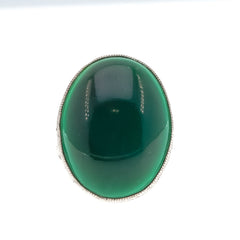Recently Sold (PGP181)
Rarities Antique Jewelry
Sorry, this item is Sold
Adornment of Protection - Ancient Anglo Saxon 7th-8th Century Silver Solar Sign Aromatic Amulet Pendant. This amazing pendant is crafted from silver, tested. The chain is crafted from sterling silver, hallmarked 925, Italy. Featuring an ancient design, exquisite detail and quality workmanship. This wonderful amulet is in the form of a ball. The ball displays exquisite detailing, which symbolizes solar decoration. The hollow ball, purposely has a hole in it so little pieces of herbs could be pushed through the hole to ward of evil spirits. The pendant shows traces of gold gild, so most likely the pendant would have had a layer of gold wash on it so many centuries ago. This fantastic Ancient Anglo Saxon pendant is in pristine condition, truly a rare collectible piece for any early collection.
History : Ancient Anglo Saxon England was early medieval England, existing from the 5th to the 11th centuries from the end of Roman Britain until the Norman conquest in 1066. ... It became part of the short-lived North Sea Empire of Cnut the Great, a personal union between England, Denmark and Norway in the 11th century. The Anglo Saxons are ancestors of the vikings. The Anglo Saxons would have spoken an 'Old English' language, which many of our words we use today. They would have understood much of the Old Norse spoken by the Vikings was, in many ways, very similar to the Old English of the Anglo-Saxons. Both languages are from the same Germanic family and could be considered as distant but related dialects.
Herbs Against Evil In many different cultures, it has long been said that there are some plants that repel evil. While some gardeners may disregard information concerning a plant’s ability to serve more alternative purposes, others may be quite interested in learning more about these “evil fighting herbs.” Folklore and stories handed down throughout history have long mentioned other uses of trees, plants, and herbs. Whether hoping to rid their homes of witches or other evil spirits, herbs were used in the form of wreaths, incense, or even loosely scattered throughout the home. Home herb gardeners may be surprised to learn that many of the plants, which they already grow, may have perceived significance as evil fighting herbs.
Herb Plants That Ward Off Evil Ancient herbalists once valued sage for its believed healing abilities, as well as its ability to cleanse spaces. The belief is in these properties is one that is still common today. Another popular herb plant, dill, was believed to ward off evil spirits when worn or when made into a wreath and hung above doorways. Dill was also used as an herb to encourage and welcome prosperity into the home. Other popular herbs said to protect the home and self from evil include rue, oregano, rosemary, and thyme. All of which, in some capacity, are said to drive negativity from the home.
Museums are recommending that antiquities should no be polished or cleaned with chemicals. To clean gently wipe down with damp cloth (water only) and pat dry with soft dry cloth. When worn these pieces should be the last item on and the first item off. They should not be worn in the shower or immersed in liquid.
Measurements: Pendant (including bale) 27.00 mm x 12.00 mm Chain: 18"
Weight: 7.80 grams ( Pendant and Chain)
Condition: Excellent : Fine state of preservation. Antiquities are luxury items. Can be worn with care.
Origin: England
Date: 7th-8th century



















